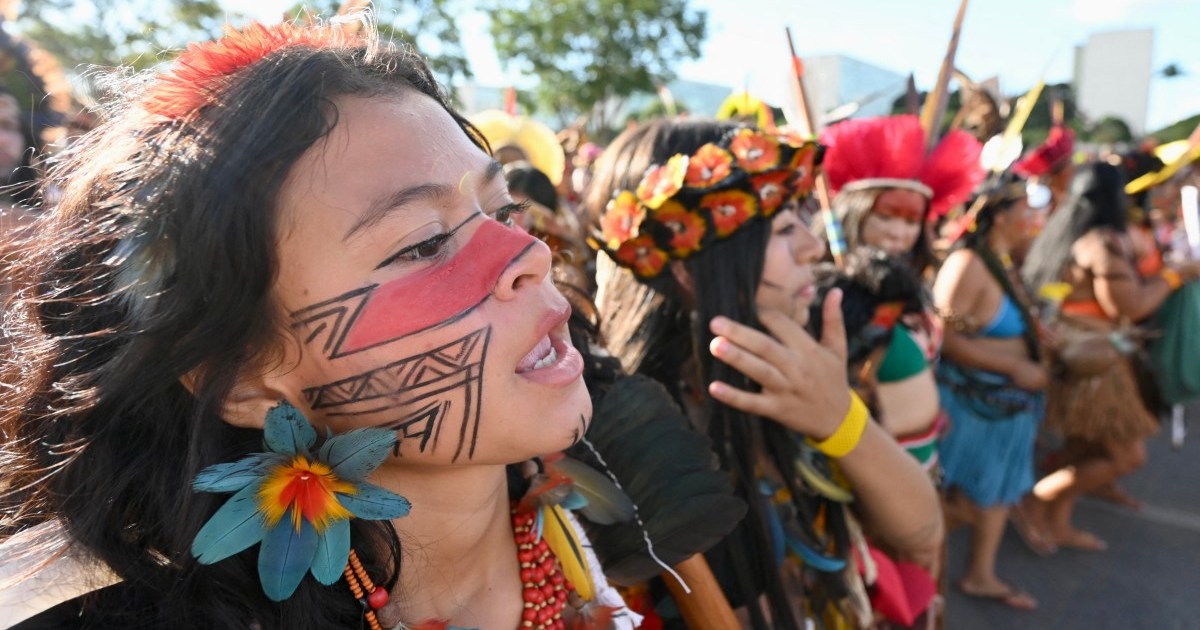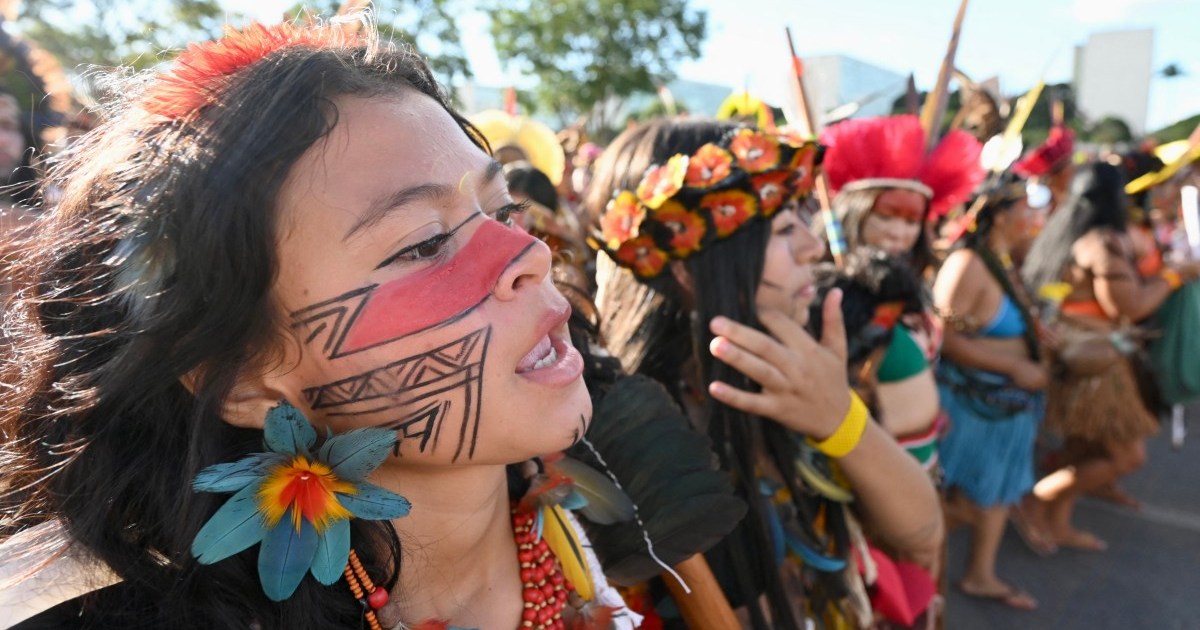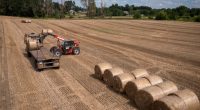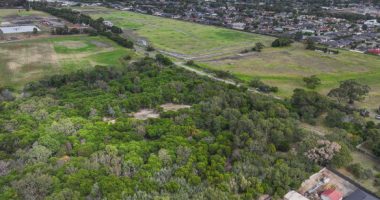
Thousands of Indigenous people marched in Brazil’s capital, calling on the government to officially recognise lands they have lived on for centuries and to protect territories from criminal activities such as illegal mining.
With posters bearing messages such as “The future is Indigenous”, they walked on Thursday towards Three Powers Square, where Congress, the Supreme Court and the Planalto presidential palace are located in Brasilia.
A group of Indigenous leaders entered the palace to talk to President Luiz Inacio Lula da Silva, while others shouted outside the building: “Our rights are not negotiable.” Last week, he backed down from the creation of four Indigenous territories, citing opposition from state governors.
In addition to calls for more land recognition, some tribes protested a proposed 950km (590 miles) rail project to transport soybeans from the state of Mato Grosso, in the central part of the country, to ports along the Tapajos River, a large Amazon tributary.
Indigenous leaders from the Kayapo, Panara and Munduruku tribes said they had not been adequately consulted and feared the new infrastructure would lead to increased deforestation.
Thursday’s rally marked the culmination of the annual Free Land Indigenous Camp, now in its 20th edition. Unlike the two previous years, the president was not invited to visit the camp, set up in Brasilia’s main esplanade.
“There is political instability, disrespect and mistrust,” Marivelton Bare, head of the Rio Negro Federation of Indigenous Organizations, told The Associated Press news agency during the march.
“We expected a lot from the government, but it’s doing very little. We knew that Congress would be hostile, but not as much as it has been. And in Congress, the government is using the Indigenous and environmental issues as bargaining chips,” added Bare, whose organisation represents 24 Indigenous tribes from the northwestern part of Brazil’s Amazon.
Previously president between 2003 and 2010, Lula began a third term last January. Since then, his administration has created 10 Indigenous territories, which leaders say is not enough. According to the non-profit Socio-Environmental Institute, at least 251 territories have pending claims for recognition before the federal government.
Indigenous territories comprise about 13 percent of Brazil’s territory. Most of these areas are in the Amazon rainforest.
Even at a slow pace, Lula’s demarcations represent a stark contrast to that of his predecessor, Jair Bolsonaro, who kept his promise not to create a single centimetre of additional Indigenous land. However, Indigenous demands face mounting opposition from the powerful agribusiness sector, which has the support of hundreds of Congress members and several governors across the country.
Read More: World News | Entertainment News | Celeb News
Al Jazeera









